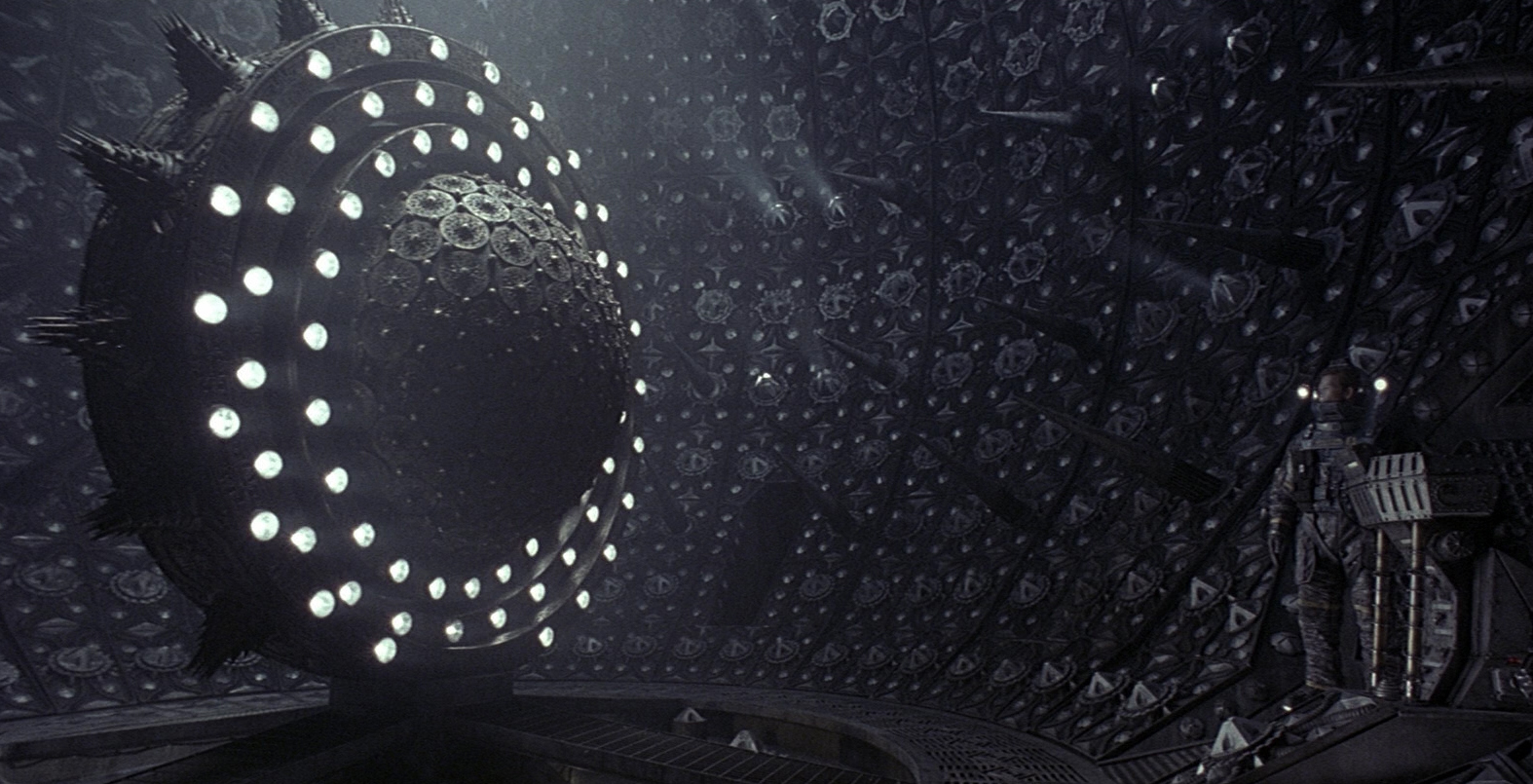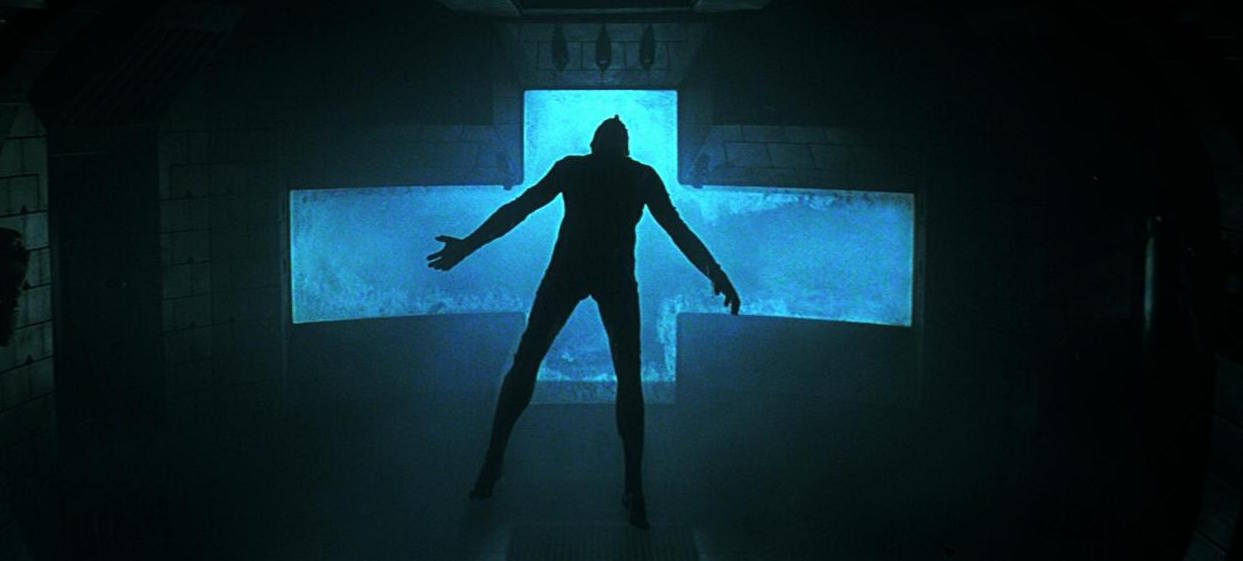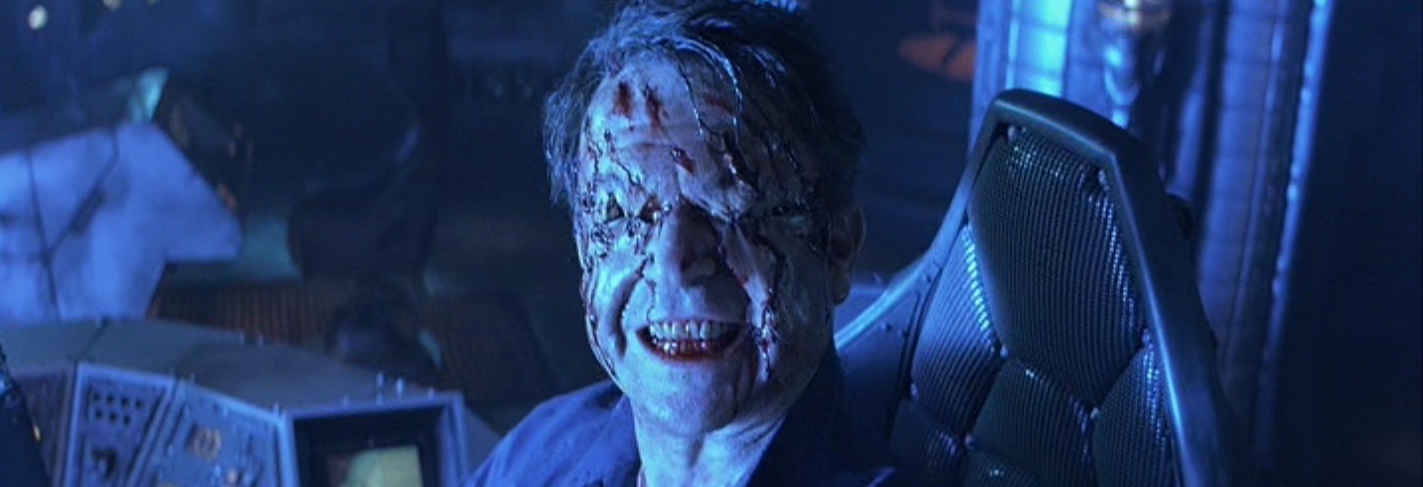31 Days, Day 7: Week 1 of Friday Frights Takes on EVENT HORIZON
Every Friday this month, the team is going to take on a horror flick streaming on Netflix as a special October sub-series of Stream a Little Stream called “Friday Frights”. This week, we tackled a little 90s cult horror film called Event Horizon.

This week was my selection, which I chose because somehow I’d never seen this film despite a lot of favorable comparisons to films I like, as well as Morpheus and Alan Grant. After watching it, I can honestly say this film has only one thing holding it back from being a classic… the third act.
Event Horizon is really strong for the first two thirds of the film. Anderson and his team nail the atmosphere and the actors are really on point. Then, we get to the the point where the payoff should occur and, well, it does… but… it feels extremely rushed and even more extremely unfocused. Basically, the third act feels like they had no idea how to wrap it up. What’s most disappointing about this is that they had a really great opportunity to flush out more about the portal to Hell and did not do much with it.
I mean, I liked it… but unless there are 20 more minutes of footage in the late second through third acts that could be woven in, it’ll always feel like an unfinished product.
 LUKE TIPTON: I was a little surprised the strong reaction I had to this. To begin with, I was very optimistic as the film started rolling. The haunted-house-in space concept was well-executed to begin with. I was enthusiastically into the tone and atmosphere. But then things just kind of spin out of control by the third act in a way that had me yelling “bullshit!” at the screen.
LUKE TIPTON: I was a little surprised the strong reaction I had to this. To begin with, I was very optimistic as the film started rolling. The haunted-house-in space concept was well-executed to begin with. I was enthusiastically into the tone and atmosphere. But then things just kind of spin out of control by the third act in a way that had me yelling “bullshit!” at the screen.
The movie is basically Alien meets Solaris meets The Shining. Nowhere near as masterful as any of those films, but still some very well-executed scares. The Event Horizon, the haunted house ghost ship was well designed, and Anderson, for the most part, managed to balance spooky atmosphere with a fully realized, lived-in sci-fi world.
Sadly, the movie squandered its promising set-up with an off-the-rails finale, and not in a good way. The Biggest problem was the way the film fumbled a major character’s decent into madness. It had some thematic significance to it, but really didn’t make a lot of sense from a practical storytelling perspective. Given the rules of the spacecraft, as established by the film, it felt completely arbitrary and tacked on. It worked against whatever thematic significance that Anderson was going for.

 GARRETT SMITH: A pitch meeting at Paramount in 1996:
GARRETT SMITH: A pitch meeting at Paramount in 1996:
Paul W.S. Anderson: “It’s basically The Shining… in space.”
Paramount Executive: “The Space Shining?”
Paul W.S. Anderson: “Well that just sounds stupid.”
This movie is packed with great visual ideas. The Core is a really incredible set that is used to great effect, and is nearly worth watching the movie for – it’s that cool. The shaft beneath the Core that’s made entirely of circuit boards is hilariously impractical but looks fantastic and also turns out to be a great set piece. Anderson creates a lot of really distinct, memorable shots through framing and the careful inclusion of a few bright, pleasing colors in otherwise grey settings. And the brief glimpses into “the dark” are truly unsettling.
But it’s also a weird combination of undercooked and on-the-nose. The characters aren’t very well drawn and their relationships are hard to care about and invest in, which makes the overall drama of the story fizzle a bit. And the Event Horizon is shaped like a cross – do I even need to unpack that?
Perhaps the most interesting thing about Event Horizon is its depiction of the future – the first title card says “2015 First permanent colony established on moon.” It’s currently 2016 and it doesn’t seem like we’re even close to that. But then the next title card says “2032 Commercial mining begins on Mars,” and I’m immediately thinkin’ that doesn’t sound too unreasonable. It’s crazy that on one hand their vision of our future is wildly off base, but on the other, we’re developing new technologies so quickly at the moment that it doesn’t seem far fetched to think that we might catch up to this movie’s proposed timeline.
Then again, I’m not sure they thought all that much about their version of the future – the year the movie is actually set is 2047, and they’re still storing data on CDs – these guys thought CDs would reign supreme for 50 more years. It hasn’t even been 20 and we’re all streaming this movie on Netflix, hoping some idiot collector will buy our DVD collections on eBay for 1/16th of what we paid for them.

 JACOB GEHMAN: There is a tired familiarity that runs through Event Horizon. I hadn’t remembered watching Event Horizon before and thanks to its embodiment of a bunch of really common sci-fi/horror tropes, I didn’t actually realize I had seen it before until about the midway mark.
JACOB GEHMAN: There is a tired familiarity that runs through Event Horizon. I hadn’t remembered watching Event Horizon before and thanks to its embodiment of a bunch of really common sci-fi/horror tropes, I didn’t actually realize I had seen it before until about the midway mark.
Despite that, Event Horizon manages to be entertaining. When you’re caught up in the moment of light flickers and blood-streaked faces, it’s hard to care that this is a plot that you’ve read before in multiple books, seen in multiple movies, and played in multiple video games. It’s fun: good, old school, mid-90s fun. And sometimes that’s all that matters.





